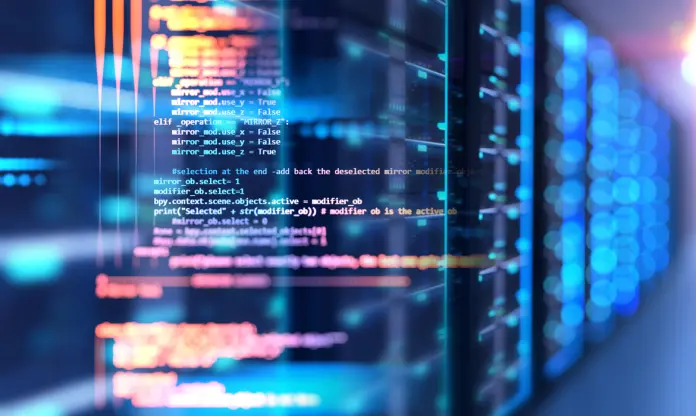Companies and, in general, those responsible for paying social contributions have reason to be concerned, particularly those that are not managing their Social Security contributions properly, which is not uncommon.

Don’t miss our content
SubscribeCompanies and, in general, those responsible for paying social contributions have reason to be concerned, particularly those that are not managing their Social Security contributions properly, which is not uncommon.
There are two reasons for this concern. First, the Administration’s capacity to handle information to detect possible breaches is set to increase, particularly in terms of Social Security contributions, thanks to the introduction of Big-Data in its oversight function. The legal coverage for this new technology will make it possible to collate an enormous amount of data and process it en masse, which, in the immediate future, will become a very powerful tool in the fight against possible Social Security fraud.
Until now, the Social Security Administration already had a large amount of data within its grasp, thanks to the work of the Labor and Social Security Inspectorate (ITSS) [sections 5.2.d) and 133 of the Spanish General Social Security Act] and the collaboration obligations between this body and Social Security in general and the General Treasury of Social Security (TGSS) in particular [sections 134 of the General Social Security Act and 16.3 and 17.1 of Act 23/2015]. From this point, however, the Administration will have access to much more and much better and faster analyzed information, thanks to the amendment that Royal Decree Law 2/2021 has introduced in two provisions of the General Social Security Act:
- On the one hand, section 40 has been reworded establishing new obligations in relation to assigning or communicating data to Social Security, now required of any legal entity or individual and extended to any datum, report, record and certification impacting the competences to perform collection functions. It will also be ensured that this information can be accessed using data intermediation platforms and analytical information processing techniques.
- On the other hand, section 71 has also been amended to extend the events of provision of information to the Social Security Administration.
The immediate applicability of this Big-Data is not concealed in Royal Decree Law 2/2021 and is linked to the establishment of more controls on the contribution exemptions applied en masse in settlements from March 2020 as a result of temporary redundancy plans due to the pandemic.
Moreover, there is another reason for companies to be concerned: Royal Decree Law 2/2021 has added a new paragraph to section 53.1.a) of the Spanish Labor Infringements and Sanctions Act, which will open the door to the facts (the alleged breaches) in infringement proceedings arising from “automated” administrative proceedings, that is, to have been only checked by the Administration’s computers or electronic machines, rather than determined by inspectors or sub-inspectors. The inspection function therefore welcomes “robots” that are capable of storing a large amount of information and processing it automatically through mathematical and logical operations controlled by computer programs.
Although the inspection function is reserved to Labor and Social Security inspectors and the Labor Sub-Inspectors (sections 3.1 and 12 of the Labor and Social Security Inspectorate Act) and their legally recognized procedures for action are visits, summonses to appear before the acting official or administrative proceedings (section 21.1 of the Labor and Social Security Inspectorate Act, section 41 of Act 40/2015, of October 1, on the Legal Regime of the Public Sector allows automated administrative proceedings and understands as such “any act or action entirely performed using electronic means by a Public Administration as part of an administrative proceeding and in which a public employee has not intervened directly.”
Where it appears that this possibility of automated administrative proceedings might have the greatest potential is in Social Security infringements, although, for the moment, it has not been extended to settlement proceedings.
It will therefore help the Administration become more efficient in detecting breaches of obligations relating to (i) registration, deregistration, membership and data changes, (ii) communication and collaboration with benefits management entities, (iii) contributions, including obtainment or enjoyment of reductions, bonuses or incentives; many of these are classified as very serious and could easily be sanctioned automatically with the data in the Administration’s databases. In fact, there are already Labor and Social Security Inspectorate campaigns under way using automated proceedings in relation to Social Security registrations processed outside the period established in regulations.
However, the scope of action for these automated proceedings could extend beyond Social Security infringements. It could therefore be used to check occupational risk prevention infringements, such as those relating to defects in communication of initiation or workplace accidents (which can be classified as very serious), or in terms of employment, such as breaches of reporting obligations and registration at employment offices.
The Administration’s new, powerful channel can now undoubtedly be used to sanction infringing conduct that previously went unpunished, as, due to its repetition and the high volume it was impossible to investigate it individually in practice.
The risk for companies does not relate to the seriousness of the infringements checked, although some could be very serious, and they even have specific and aggravated monetary sanctions that can be supplemented. Beyond this, the danger of this change lies in massive processing of data, which can in turn lead to massive generation of infringement proceedings in relation to the same liable party. Repeated delays in any type of data communication to the Administration, for example, can entail several infringements, one for each delay, as they are different, albeit repeated, breaches. The robot will not think and will simply launch the infringement proceedings based on the parameters entered into the system.
The impact of the increased collaboration obligations with the Social Security Administration, connected to the possibility of the Labor and Social Security Inspectorate initiating infringement proceedings on an automated basis, is sure to be highly significant for companies, particularly those with a significant management volume in relation to their workers.
Don’t miss our content
Subscribe